I’ve touched on professional conduct and etiquette occasionally in the past, but in reflecting on some of the events of the past year (’tis the season for such thoughts you know) I thought I’d talk again about an aspect of being a pro, this time as it pertains to parts of social media. Fair warning: I’m going to use some dirty words—because they fit and it’s the way I talk—so if you’re easily offended, I’ll understand if you stop reading now.
For most, the various social media venues are happy places populated with cat pictures, goofy videos, food photos, jokes, personal news updates, commiserations, and words of encouragement. Really, it can be pretty innocent and enjoyable.
But if you’re on Facebook or Twitter or this-or-that blog, vlog, or message board for any significant stretches you know that the internet is at a constant boil. Virtually every “nice” bit we might encounter seems to be contrasted with shrill, obnoxious, ignorant, and ugly pronouncements about pretty much everything. I guess we should expect the vitriol associated with such polarizing issues as politics, religion, gun rights/gun control, race, gender equality, and foreign policy, but…art and artists and art directors and publishers as hot-button issues?!?!? Differing tastes as sufficient reason for threats and insults?!? Yesh. It’s this constant pastime—verging on addiction—of fucking with each other via social media that is both inexplicable, inexcusable, and disheartening.
tends to be meted out in a hang-first-ask-questions-later manner.
Everything is fodder for online “shaming” these days; anything—and anyone—can be targeted by zealous vigilantes eager to deal out some mob justice for any perceived slight or infraction, real or imagined. And the most common tactic? Rouse the like-minded (or the malcontents looking for mischief) and relentlessly attack in a swarm until the target cries uncle or disappears from the Virtual Arena.
Misspeak or express yourself clumsily or voice an opinion that is not generally popular? How dare you, you slime! Like something I don’t like? Attack, gang! Tell a joke that offends me? Why don’t you drink bleach? (I actually saw someone post that comment directed at an artist who drew a dumb cartoon.) Create something—a drawing, a painting, a film, a comic, a book—that doesn’t toe my personal/political/moral beliefs to the T? You should never work anywhere ever again! Oh yeah…and DIE!
The thing is, you never really know who is going to get pissed off over what. Is the anger real or is it being manufactured by a “Rage Profiteer?” Question motives and you’re only asking for more explosions. Whether your societal outlook is liberal, conservative, fringe, or unaffiliated doesn’t matter a lick; the internet is a melting pot of dysfunction that will happily spill itself over the head of the unwary. There are no absolutes and no consistency, no way to predict when someone might ignore common sense, overreact, and attack—and, yes, even though men and women both get furious when told they’re overreacting in a situation, most of the time…they’re fucking overreacting.
These days people are outraged by those who get outraged; others demand “trigger warnings” for fear of encountering language or images or topics or ideas that might upset them—and woe to you if upset they become. Life with a Movie Rating System (and there are plenty not too happy with that NC-17 rating at all, lemme tell you). Ban this, censor that, demonize “cultural appropriation” (did you know that taking Yoga classes was culturally insensitive? Me neither), and vilify historical figures or works because what was acceptable 100 years ago sure as hell doesn’t jibe with the thinking today, nosirree! (Yes, yes, entirely specious positions that ignore context, but that rarely stops half-baked personal opinions from being posited as universal facts and going viral.) And you’d better apologize profusely when “wrong”—but, guess what? When on the receiving end of a Facebook or Twitter assault, you’re always wrong and no apology if offered will ever be good enough. Online vows of petitions, boycotts, and website hacking are positively quaint when compared to those far-too-common threats of battery, rape, and murder. Naturally, such threats are 99.99% of the time little more than hot air…but the knowledge that there’s always at least one nutjob in the shadows who might be armed (particularly these days) always gives the recipient of hateful messages at least a moment’s pause.
As Farhad Manjoo wrote recently in The New York Times, “The extremists of all stripes are ascendant, and just about everywhere you look, the internet is terrible.”
How did we get to this point? I really haven’t a clue.
Oh, sure, no question there are great people to be encountered online; great conversations to be had, great things to learn. We don’t have to all agree about everything to get along: that’s part of being a grown up. When you really think about it, the “bad apples” are relatively few; the good people far outnumber the villains. It’s just that the villains tend to make the most noise, get a disproportionate amount of attention, and persuade otherwise calm and sane folks to join in with their lunatic crusades. A handful can keep stirring a pot again and again and make it seem like the whole world is somehow lined up against you, but that’s not true: little people trying to build themselves up by tearing down others can only have an impact on our lives if we allow them. Not giving them any attention denies them power over us; eventually they become less than a faint noise in the wind.
I’ve seen friends attack others online (though they’d never admit that that’s what they were doing) and am always surprised and deeply saddened when it’s happened. I understand how the temptation to chime in when somebody says or does something “dumb” can seem irresistible, but the old schoolyard retort of, “Who died and made you king/queen?” should always be remembered (but rarely is) along with the answer: “Nobody.”
no, you reach out and you pick up this one little turd and you say, ‘This turd, well
THIS turd pisses me off. I’m gonna do somethin’ about THIS turd!'”
—Dix [Fred Ward] in the film Off Limits
No matter how closely I look, there never is a valid justification for either the attacks or the time wasted to launch them—and even if there was some questionable “reason,” I’ve simply never condoned behavior that is pointless, self-righteous, and, let’s face it, mean. During her Women of Wonder panel at the last SFAL, my wife Cathy pointed out that when trying to overcome people’s prejudices, “The big danger we must avoid is in becoming what we hate. Answering one form of abuse with another keeps everything toxic and solves nothing.” A civil conversation, a calm exchange of views and opinions, an honest debate of ideas and philosophies, can result in a positive outcome, but fighting online doesn’t change people. It doesn’t “fix” anything; it only creates anger and unhappiness and often causes unforeseen responses and consequences.
Never start a fight unless you’re prepared to get hit back. Hard. And don’t cry foul when someone you pick on turns out to be a tougher sonofabitch than you are. Let’s not beat around the bush: deliberately inflicting emotional pain on others—fucking with people (as I mentioned at the outset) just because the internet facilitates it—is wrong and indefensible.
Just as I’ve watched friends and associates misbehave online I’ve also seen friends get hammered: sometimes they’re blindsided by morons, sometimes they inadvertently bring it on themselves by being flip or thoughtless—and get blindsided by morons. Regardless of when or why, I’ve done my best to console them. I can think of very few circumstances in which a public drubbing—a public shaming—is ever deserved and the unfortunate truth of our cyber age is that when they occur online they can resurface unexpectedly and take on an entirely new life years later, reopening old wounds and causing hurt all over again.
The internet—and social media in particular—has an insidious way of undermining our connections of civility, allowing us to forget that there are always—always!—people on the receiving end of the snark and barbs.
Ryan Holiday wrote a solid piece for The Observer which astutely talks about the current social media climate as a parallel to Ray Bradbury’s classic Fahrenheit 451. I was particularly impressed with his summation:
“Real empowerment and respect is to see our fellow citizens—victims and privileged, religious and agnostic, conservative and liberal—as adults. Human beings are not automatons—ruled by drives and triggers they cannot control. On the contrary, we have the ability to decide not to be offended. We have the ability to discern intent. We have the ability to separate someone else’s actions or provocation or ignorance from our own. This is the great evolution of consciousness—it’s what separates us from the animals.
“What also separates us is our capacity for empathy. But how empathetic the speech we decide to use is a choice for each one of us to make. Some of us are crass, some of us are considerate. Some of us find humor in everything, some of us do not. It’s important, too—but those of us that believe it and live our lives by a certain sensitivity cannot bully other people into doing so, too. That sort of defeats the purpose.”
Mr. Holiday much more succinctly makes the point I’m trying to make here: each of us most definitely has a choice as to how to comport ourselves, of how to treat others. Remember that we don’t live and work and create in a vacuum. Remember, too, that whatever we post or tweet is seen—and often seen by people that don’t necessarily share our views—and remembered (often with screenshots). Managing your career as an artist—or art director, designer, editor, or writer—also means managing your social media presence and behavior. Etiquette, empathy, and ethics all combine to help make us successful in life and in our careers and is often reflected in the work we produce; engaging in or condoning in others’ antisocial actions online undermines our professional opportunities and personal happiness.
So this is a reminder: be a pro. But also…for goodness sake be kind to each other.


![[Anti] Social Media](https://www.muddycolors.com/wp-content/uploads/2017/12/eeeff-1931_frankenstein_img28.jpg)
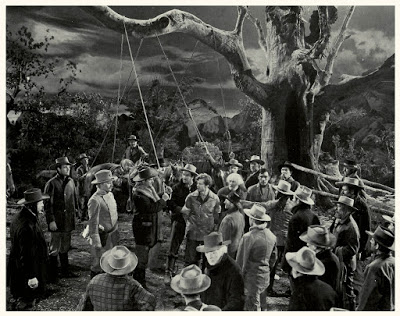
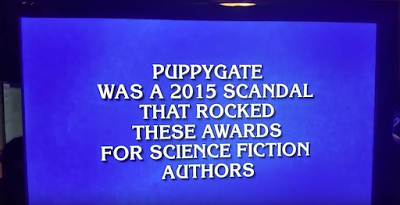
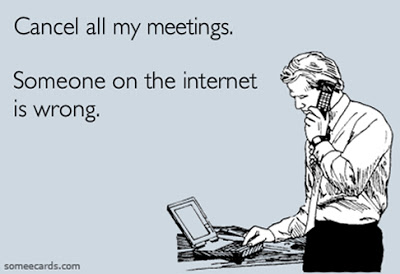

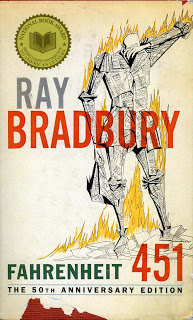



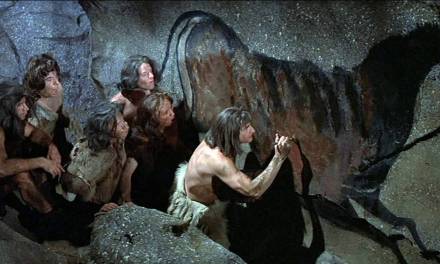
Oh Arnie, I couldn't agree more. I do not reveal myself online, except for little pieces of me (e.g., I like a certain kind of art) because I've seen what you describe happen thousands of times and am not willing for it to happen to me. At the same time, I yearn for an open discussion of ideas and a civil debate about important issues.
I would love to share my feelings, beliefs and why I feel that way with others who disagree and are very different, but that is a dangerous thing to do today. All I ask for is respect, and I would love to give that in return. That's one reason why Muddy Colors is so great – most of its bloggers and readers try to avoid purposeful misunderstanding and give others the benefit of the doubt.
Thanks for this post.
Well said, Arnie. This topic is a real concern. A few additional thoughts…
I think toxic self-righteousness is a byproduct of frustration and stress. And social media and mutual global access have only intensified our sense of competition, confinement, and insignificance. So not only are people increasingly frustrated, but now any conversational victory is even more evidently insignificant when taken in global perspective.
Yet “being right” is something even the most battered, disappointed human being can attempt to “win” at. Most righteous remarks are no more than weaponized sound bites, half-baked bumper stickers of the mind. These memes of righteousness are easy to learn, easy to say, and have strong emotional impact on one's self and others. So we are talking about the junk carbs of discourse.
Self-righteousness offers a quick hit of momentary ego satisfaction, and then nothing. There is no material achievement, no practical knowledge, no philosophical nourishment to be gained from it; just a fleeting moral superiority, a brief instant of special-ness in a sea of sameness and a life of routine. Which, I think, is what makes self-righteousness so addictive; why so many become serial abusers of it. Because, as a stimulant, it is cheap as hell (in the short run) and it comes with the illusion of victory. But then it is quickly followed by a hypoglycemia of the soul. And so the next hit becomes a necessity to prevent an ego crash. The result over time is a kind of learned manic-depression requiring constant attention.
Click-baiting rage profiteers (which includes most if not all news outlets, in my view) and political demagogues of all stripes are clearly both dependent upon this human failing and actively encouraging it as a business model. In some sense, we become trained by how we are treated. And billions are being trained as pawns in a game of not only no real benefit to them, but one which wastes the most valuable resource they possess, which is time. Which brings up the most pernicious aspect of any long term addiction; the life it wastes.
There is certainly a culture of “morally justified” hatred around, and it has real consequences. People are getting harassed and even fired over basically nothing, I have seen it happen over and over. It's disturbing. It's not even an Internet thing any more (if it ever really was).
One of the biggest issues I have with this mob justice behavior is, the behavior of extremists obscures genuine issues which deserve serious attention. For example, the original purpose of trigger warnings was to warn PTSD sufferers of graphic descriptions of rape and violence. This is a very real problem, but the abuse of trigger warnings by tumblr culture unfortunately causes people to not take the concept seriously.
I think everyone would be way better off if we could discuss these issues without all the vitriol.
Well said right back at you, Kev! 🙂 And I agree that often the antisocial internet behavior is a direct expression of personal frustration and stress just as the expression is often mistargeted: a lot of innocent people wind up being collateral damage.
Here's a bit from Fortune about a recent study at Duke University:
“New research shows the human brain is wired to react more emotionally to the bad things people do. That’s why we tend to assign blame much faster than we give compliments. It turns out that the labels of blame and praise are processed in different parts of the brain, by different mechanisms. While blame is assigned from a very emotional place, praise comes from a more logical spot. The end result? People are more likely to assume that the good acts of others are simply happenstance, but bad things are done on purpose.”
So maybe we're prewired in some weird primordial way to see the worst in others and act accordingly, I don't know, but what I do know is that it's really not difficult at all to treat others with courtesy and respect. Seems logical to me. 🙂
Thanks for your comment!
I agree, Lindsay!
It's a sad state of affairs when any of us feels that we can't talk openly and honestly with civility with those we might disagree with. As Kev says below, “winning” is more important to some than listening. None of us are “right” all of the time, me particularly, and the more we all listen, the more we learn and understand. Our world grows bigger and we're better for it.
Thanks for your comment!
I've mostly abandoned social media because it's a waste of time, and I'm deeply disappointed by my friends' meal choices.
I remember the time before Facebook when, if I wanted to find out what my friend's thought, I asked them face to face and had a real discussion. Today, a “discussion” is a meme of a sad kitten with a Gandhi quote.
I've withdrawn nearly all my internet communications to blogs (mine and others', like MC) where the conversations tend to be a bit deeper, more focused, and usually interesting.
I have found Facebook useful for meeting artists around the globe. It’s also good for seeing people post artwork that they are interested in sharing. But I am also disappointed by the petulant and argumentative reactions I sometimes encounter. I understand why rational people may choose to disengage from social media rather than argue. Social media is poor as a medium of “debate” and rarely leads towards an enlightened perspective, in part because the format is so abbreviated and fragmentary. If some Facebook post blurts: “Jackson Pollock is shit!” You can’t hold that person’s attention through a Facebook discussion to change their mind (or become better informed.) However, I do not think fear of repercussions on social media should move us to silence our opinions. We are obligated to speak out, lest our culture collapse into an anarchy of ignorance. In this regard, one of the failings of social media is that it is so “equalizing.” Social media does empower each and every one of us to reach the whole world with our opinion. In a perfect world that would mean that we all become equal. But in art, not everyone is equally talented. Everybody does not get to be as good as Mozart, J. S. Sargent or Frank Frazetta. And on the receiving side, everyone does not have equally good taste in art. If everyone had equally good taste, there would be no need for fashion designers (Armani), architects (Pei), or Steve Jobs to show the rest of us the path to elevated taste. Taste is a matter of education, exposure, and thoughtful consideration. Through history, taste was a hot topic for philosophers from Plato, Hume, and Kant to the Frankfurt school. But the main point was — taste could not operate without some careful consideration of culture and judgement, exactly the opposite of Snapchat and Twitter. I think we should be kind to each other, but also as artists, we fight a daily battle to locate our own sense of taste and defend it. The artist must decide: “This is good” and “this is not,” for to operate otherwise is to give up any personal compass and go nowhere. Critically, the problem is this: to be a good and useful critic, you can’t just offer an “opinion.” No, you need to present us with your argument for how you see the art, and if you are good, truly good, even a seemingly cruel assault on an artist’s character can also be enlightening for all concerned. I am reminded, by way of example of the late Robert Hughes deep dislike of Damian Hirst, and yet his reviews of Hirst were not just venom but articulations of how they offended his taste, i.e.:
“Hirst is basically a pirate, and his skill is shown by the way in which he has managed to bluff so many art-related people, from museum personnel such as Tate's Nicholas Serota to billionaires in the New York real-estate trade, into giving credence to his originality and the importance of his “ideas”. This skill at manipulation is his real success as an artist. He has manoeuvred himself into the sweet spot where wannabe collectors, no matter how dumb (indeed, the dumber the better), feel somehow ignorable without a Hirst or two. Actually, the presence of a Hirst in a collection is a sure sign of dullness of taste. What serious person could want those collages of dead butterflies, which are nothing more than replays of Victorian decor? What is there to those empty spin paintings, enlarged versions of the pseudo-art made in funfairs? Who can look for long at his silly sub-Bridget Riley spot paintings, or at the pointless imitations of drug bottles on pharmacy shelves? No wonder so many business big-shots go for Hirst: his work is both simple-minded and sensationalist, just the ticket for newbie collectors who are, to put it mildly, connoisseurship-challenged and resonance-free.”
I don’t expect all social media posts to have that level of wit, but I do look for sparks indicating intelligent life on Earth still exists.
Well said, Walt.
That's why we have anonymous discussion boards on the internet – to disconnect your person from that which is said, allowing the discourse to be completely honest and removing the need for identity politics.
(unless you catch the eye of certain government officials at which point they trace your ip and…)
The concern with anonymous discussion boards, though, is that they can facilitate dishonesty and trollish behavior right alongside those trying to be honest and sincere. Without having to worry about accountability, anonymous posts can turn ugly quickly and end an otherwise worthwhile conversation and drive away interesting people. Unfortunately, it can be a bit of a slippery slope.
I somehow missed it. What was Puppygate?
It's long and messy, David. But in a nutshell… There are a group of conservatives called the “rabid puppies” who felt that too many books with what they deemed objectionable content (ie. homosexuality) were winning Hugo Awards. So they amassed a huge group of people to outvote every other potential nominee making pretty much only the books they thought were ok eligible for awards. The people on the other side of the argument were equally vehement, resulting in a very skewed voting. In the end, the Hugo Awards are lesser for it.
I didn't know about this puppygate thing either, but I am wondering who these groups that the article is hinting at are, because it get's muddy in places. From what I see, those doing the damage, the provoking, the screaming, the demanding of people being fired, the segregation, the censorship etc just because they had their opinions challenged, are the identity politics/social ideologues. I wish the article were more specific.
Naming names does little more than invite everyone to choose sides and start arguing; that's precisely what this post is NOT about. It's meant as an overall reminder that, regardless of what side of an issue you might come down on, there are always people in the mix.
I don't disagree, but I find it tiring to always speak about things as if they are immaterial, like a ghost. It's “some” people who are bad in politics, “some” people who are bad in business etc. I do understand that it's good to be kind and civil, but really, when someone's a bully (or worse), what's the use of carrying on being kind to the bully?
Mind you, I'd much rather these things didn't happen at all.
Thanks you for sharing